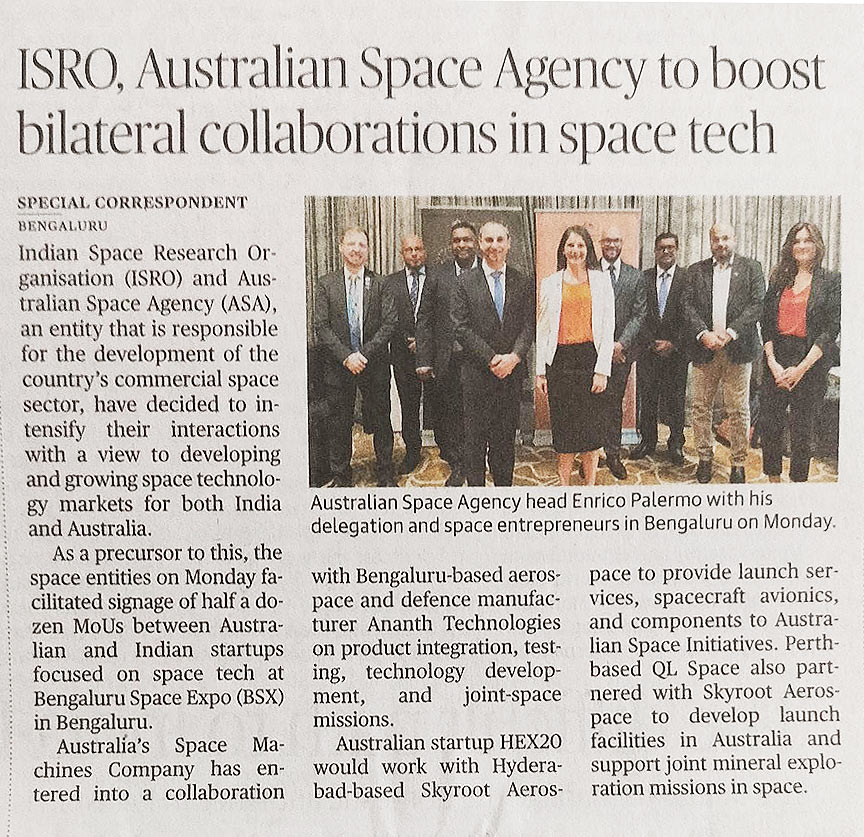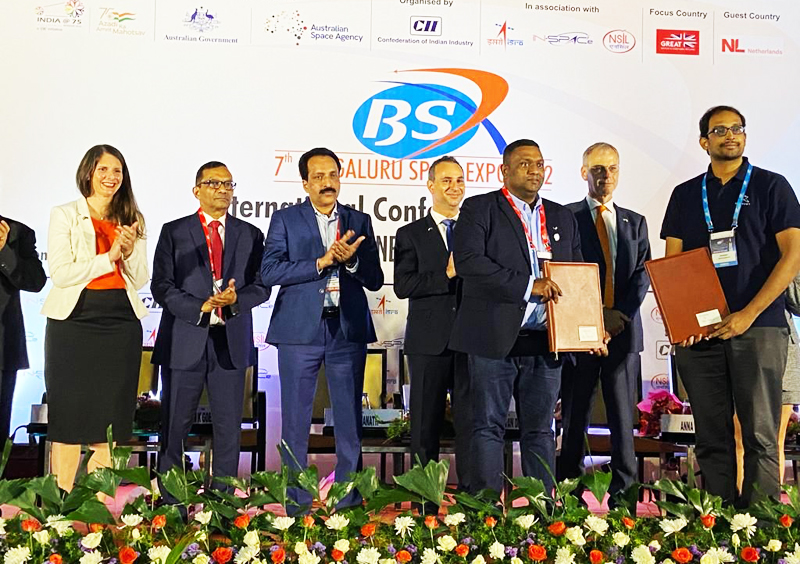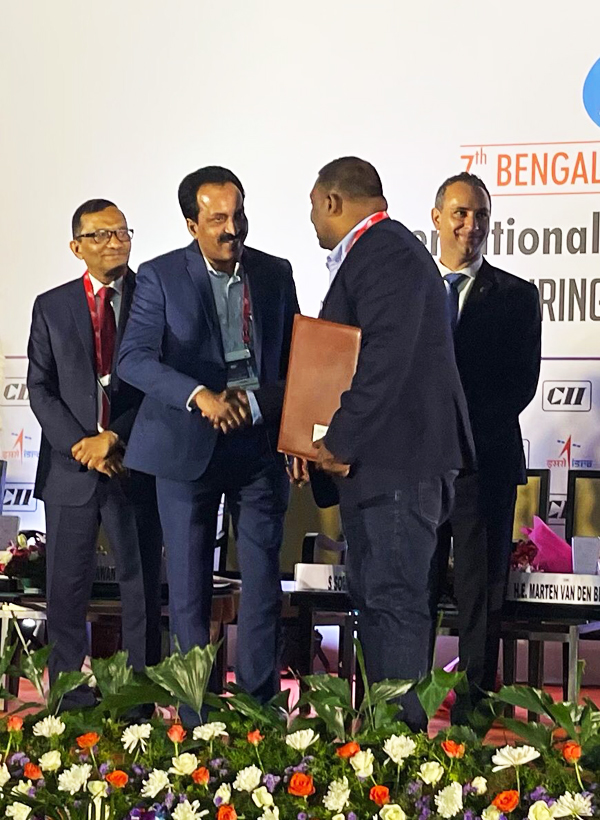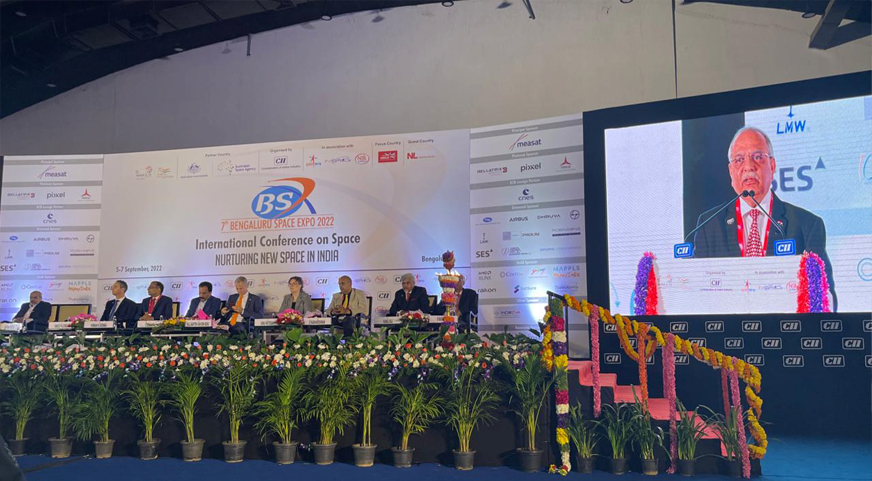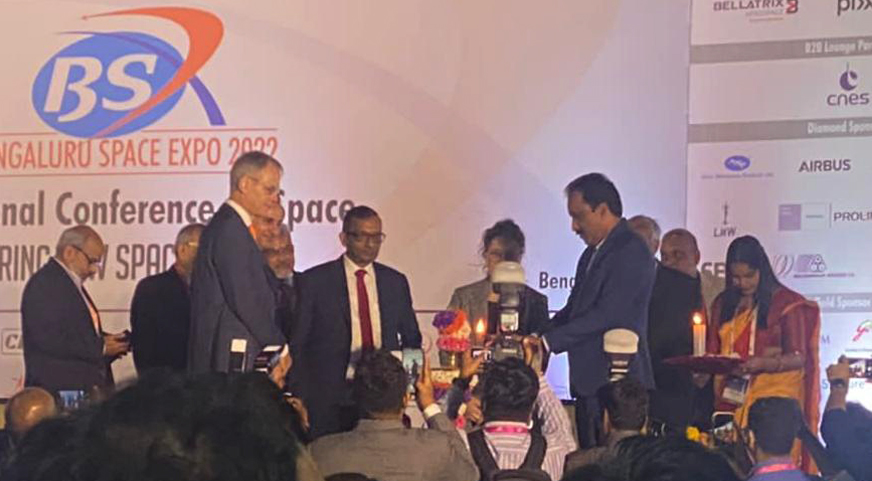About UniSA’s Innovation & Collaboration Centre (ICC)
Established in 2015, the Innovation & Collaboration Centre (ICC) is a strategic partnership between the University of South Australia and the South Australian Government and to support technology-based incubation and business growth in South Australia.
Enabled by world-class tech resources and tools, the Centre runs the Venture Catalyst program which supports enterprises from idea generation to growth and expansion stages.
The University of South Australia’s Innovation & Collaboration Centre (ICC) is today announcing nine startups that have been merit selected for a place in the Venture Catalyst Space program, supported by the South Australian Government’s Space Innovation Fund.
A leader in space innovation and business acceleration, the program is the first of its kind in Australia.
Startups will receive the individual support they need at the time they need it through a tailored program with all equity and intellectual property remaining with the company.
Premier Steven Marshall said the incubation program is helping ensure that leading space startups are supported in early stage operations, which is crucial to creating a space ecosystem conducive to sustained growth.
“As a state and as a nation, we must continue to support the pipeline of startup and scale-up space-related companies to build on and sustain our space economy,” he said.
“The support provided through the Venture Catalyst Space program will help position these nine startups with the capability and capacity for long-term success in the national—and global—space arena.
“It is the startups of today that will become our future leading businesses and with that said, I’m thrilled to see such strong representation from South Australian-based companies.
“South Australia currently has 31 per cent of Australia’s space industry, and my Government is committed to seeing this number grow as we push forward as the nation’s centre for space industries.”
Each company will receive funding, access to specialist business acceleration workshops, one-on-one mentoring, a modern co-working space, and technical resources and tools.
They will work with global industry experts, including Kirk Drage, (co-founder of LeapSheep), and key representatives from the space industry including former NASA astronaut and space shuttle commander, Pam Melroy.
UniSA Vice Chancellor Professor David Lloyd says that, as the home of the Australian Space Agency and a thriving start-up community, South Australia is at the forefront of the Australian space industry.
“At UniSA, we’re giving startups and entrepreneurs with great ideas the tools and support they need to become sustainable businesses,” Prof Lloyd says.
“As Australia’s University of Enterprise, our culture of innovation is anchored around global and national links – and we are excited that our Venture Catalyst Space program is growing and supporting the State’s economy.”
Associate Director of the Innovation & Collaboration Centre, Jasmine Vreugdenburg says the program
continues to attract space startups from around the world who are interested to join the home of
space in Australia.
“By bringing new technologies and high-growth startups through our program, we are contributing to the growing space industry in Australia and putting Adelaide on the map as the centre of gravity for space activity,” she says.
“The applicants want to come here because they have seen the success of other companies that have been through the program like Lux, Astrogate Labs and Ping, which are a testament to the world class quality of the program which can only be achieved with the support of our space ecosystem partners.
The companies taking part in the program are South Australia’s Firefly Biotech, Locus Rose, Hex20, Moonlode and SPACELIS, joined by India’s 114ai & Digantara, Astroport Space Technologies (USA) and satsearch (Netherlands).
| 114Aai |
New Dehli, India |
SpaceWise by 114ai is an exploration toolset to visualise and analyse multiple input streams of data for advanced space command and control using cognitive AI. |
| Astrosport Space Technologies |
San Antonio, USA |
Astroport turns moon dust into bricks and materials for 3D construction printing of lunar infrastructure such as roads, habitats and landing facilities. |
| Digantara |
Bengaluru, India |
Digantara is developing a group of satellites to track orbital debris, so those sending hardware into space can avoid it. |
| Firefly Biotech |
South Australia, Australia |
Firefly Biotech provide tools and processes to make biology research in space accessible to researchers. Their technology allows the research biologist to cross the engineering rift and do what they do best, biology. |
| Locus Rose |
South Australia, Australia |
Locus Rose is designing a novel cost-effective compact, portable parabolic dish (antennae) for use in the space industry. |
Founder of Texas based startup Astroport Space Technologies, Sam Ximenes says the company is looking to establish a branch office or company division in South Australia to develop its technology and find a strategic partner or company with an interest in co-developing for the Australian market and space exploration.
Founder and CEO of Indian company Digntara, Anirudh Sharma, says his company is specifically interested in the “rich networking opportunities and investor portfolios in the Venture Catalyst program.”
Find out more about the program at https://icc.unisa.edu.au/programs/venture-catalyst-space/.
Media Contact: Georgia Minarelli email: georgia.minarelli@unisa.edu.au mobile: 0413 314 726

